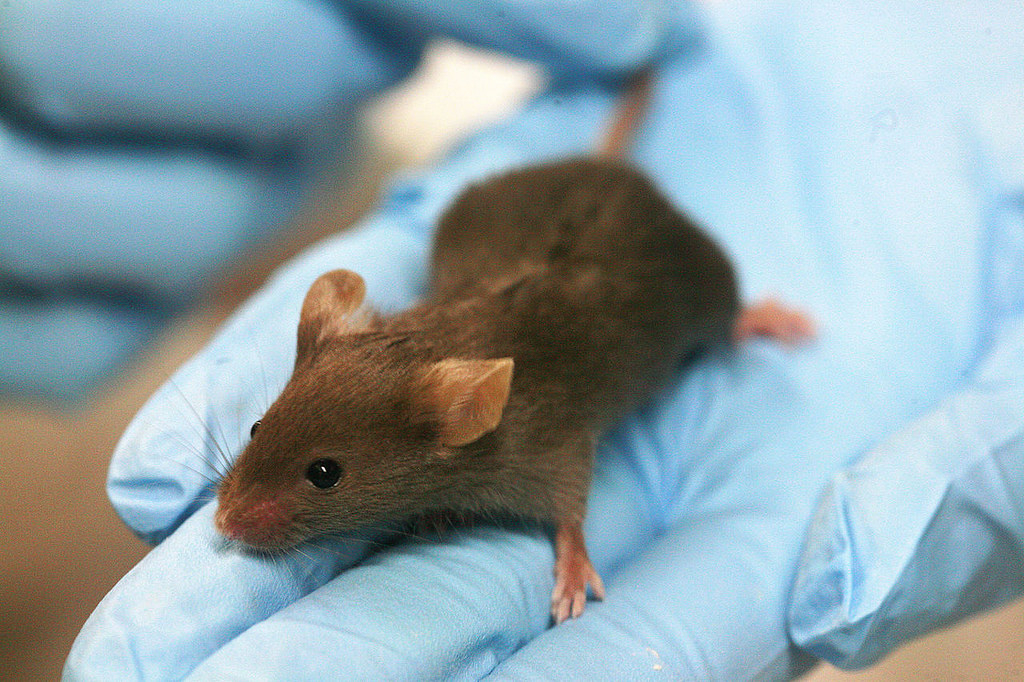Support strong Canadian climate journalism for 2025
A bill that would ban cosmetics testing on animals in Canada has run out of time to pass in the House of Commons — despite clearing the Senate nearly a year ago.
Senators voted in favour of sending Bill S-214 down the hall on June 19 last year. But with the parliamentary session winding down in a few weeks, the bill has yet to make it to a House committee and will die when the election writ drops, even though it has strong support across parties.
Known as the Cruelty-Free Cosmetics Act, it has been working its way through Parliament for the entirety of this session. It was re-introduced by Conservative Sen. Carolyn Stewart Olsen in December 2015, who’d first brought it forward in the previous session.
In addition to prohibiting the testing of cosmetics on animals in Canada, the bill would also have amended the Food and Drugs Act to ban the sale of cosmetics developed or manufactured elsewhere using animal testing.
It included a four-year phase-in period to allow the industry to adjust, which mirrors the approach taken in the European Union. Testing has been banned there since 2009, and the sale of cosmetics developed through animal testing — regardless of where in the world the testing took place — has been prohibited since 2013.
All-party support
At committee in the Senate, the bill received unanimous support, and also has support across party lines. However, its sponsor in the House, Conservative MP Marilyn Gladu, didn’t table it until April 12.
That has Liberal MP Nathaniel Erskine-Smith, a vocal advocate for improving animal protections in Canada, scratching his head. He was told by the clerk of the House that the bill could have been introduced as early as Sept. 17, 2018. Based on estimates from the procedural clerk, given the support for it, it would have been assured passage.
“This would have very easily become law before June,” he said in an interview.
“There’s just no good explanation as to why a bill that should have passed with all-party support is going to run out of time.”
Of the four animal-related bills that have been working their way through Parliament — also including S-203 (to end whale and dolphin captivity, which MPs voted in favour of Monday), S-238 (to ban the import and export of shark fins) and C-84 (bestiality and animal fighting) — Erskine-Smith said “this was the legislation that was most obvious to pass.”
“My understanding is that the government, much like other parties, is supportive of the legislation with some minor amendments. That is no reason to wait to introduce it. Why not introduce the bill as early as possible, get it to committee and get it passed?”
Stakeholder consultations blamed for delay
Gladu has said she was surprised to find so much disagreement on the bill among stakeholders when it came to her.
Discussions to find consensus among stakeholders went on until December, she told the House last week, but she didn’t receive a draft of the amendments from them until February. At that point, she said, she heard from the health minister’s office that the government might also want to make further amendments.
Gladu said some of the amendments were to bring the bill in line with the EU before it was tabled, to ensure there were no trade issues through the Canada-European Union Comprehensive Economic and Trade Agreement (CETA).
Michael Bernard, deputy director of Humane Society International (HSI)/Canada, which is a strong proponent of the bill, said a lot of work has been done behind the scenes with industry groups and other NGOs to land on language everyone was happy with.
“We would rather find legislation that will be strong and effective, and assure Canadians their cosmetic products aren’t being testing on animals, rather than rush to introduce something that is going to make things worse or fall apart eventually,” he said.
“It’s very important to get this legislation right.”
Overall, he said, they’re 90 per cent there, but one major sticking point involves data. Certain players in the cosmetics industry want an exemption in the bill to allow ingredient data gleaned through animal testing in the medical or environmental sector to be permitted for use in cosmetics.
'A dangerous loophole'
Pam Damoff, parliamentary secretary to the minister of health, told the House last week it only makes sense to allow evidence derived from animal testing to be submitted to support the safety of a cosmetic, given that it was not undertaken for the purpose of developing the cosmetic itself.
“Not permitting this would mean ignoring potentially crucial existing information that might enable us to better protect the health and safety of Canadians,” she said.
"The European Union recognizes the importance of maintaining access to this evidence.”
However, Bernard said that while that may sound reasonable on its face, the reality is many of the players in the cosmetics industry are part of large corporations that have their hand in all of many sectors. If animal testing is prohibited on cosmetic ingredients, there’s nothing to stop animal testing on ingredients in a company’s other lines of business, which can then be used in cosmetics.
“To us, it’s a dangerous loophole. If it’s blanket exemption for data use, to us it renders this legislation ineffective,” he said. “It’s a back door to use these ingredients.”
The government isn’t always so involved in private members' bills, but this one has landed on the radar of Health Minister Ginette Petitpas Taylor.
“Our government supports the elimination of animal testing for cosmetics and will remain committed to the responsible and ethical use of animals in research and development,” said Thierry Bélair, press secretary for Health Canada.
'This bill could pass'
Damoff, the health minister’s parliamentary secretary, told the House she was disappointed with how long it took the bill to get to its current status — something NDP MP Peter Julian said he didn’t buy.
“I think that smells of rank hypocrisy,” he responded.
“We have the ability and the opportunity to pass this legislation within the next three weeks. The government has all the tools at its disposal. Over the past four years, the government has been giving itself ever-increasing powers and procedural tools. Let there be no doubt that this bill could pass if the government really wanted it to.”
Had the bill passed, Canada would have become the 40th country in the world to ban cosmetic testing on animals. In addition to the EU, India, New Zealand, Taiwan, South Korea, Guatemala, and Australia have already taken similar steps, while legislation is in the works in a handful of other countries, including the United States.
Given the large number of established ingredients that have already been tested and technological advancements that have created alternatives to animal testing — including by the Canadian Centre for Alternatives to Animal Methods at the University of Windsor — proponents of the bill said there is no reason to continue to subject animals to needless suffering. Many large, well-known brands have already sworn off the practice — or grown without ever partaking in it.
There is also strong public support for prohibiting testing on animals. A 2013 poll commissioned by HSI and the Animal Alliance of Canada found 81 per cent of Canadians supported a ban on the practice.
Last year, the largest petition in nearly 70 years landed on Parliament Hill’s doorstep, calling for an end to cosmetic testing on animals. At the time, it contained the signatures of 630,542 Canadians from across the country.
“The only thing stopping this bill from passing is time,” Erskine-Smith said. “And the person responsible for it running out of time is the Conservative sponsor. Something is very wrong that we can’t ban this practice.”
Initially, his sense was that because the bill had a Conservative sponsor, the fight would be to ensure the government was supportive.
“It turns out that wasn’t the hurdle at all,” he said.
“It’s not only inexplicable, it is unacceptable for a member of Parliament to abdicate their responsibility to introduce legislation that they are the sponsor of, ensuring that the legislation dies. And then at the same time, to host a reception to take public credit for the bill?”
He was referring to an event Gladu held last Monday with fellow Conservative MP Bruce Stanton and proponents of the legislation.
“If (those who signed the petition) knew that this bill would have become law and the only thing in its way was a Conservative member who failed to introduce it, I think those hundreds of thousands of Canadians would be shocked,” Erskine-Smith said.
“She is singularly responsible for it failing.”
Bernard said he’s disappointed every day this legislation fails to become law, given the years of work that have gone into it.
“Animals' lives are being lost with this not moving forward at this time. But I am proud of the work that’s gone into it and confident we will get it right for the animals,” he said.
"It's work that cannot be lost. We’ll be calling on the next government to put forward a bill and move quickly on it.”
National Observer made several attempts to reach Gladu. In a voicemail, she said she’d done what she could with the bill, including moving it up on the order paper and trying for an unanimous consent motion to move it along, which was rejected.
“At this point there’s not enough time to do anything more in this session,” she said. “All the parties that spoke to it seem supportive of the amended version, so it will have to introduced in the next parliamentary session.”
Followup calls were not returned.
Erskine-Smith said if he’s re-elected this fall, he will be taking the issue up again.
“I won’t forget the hundreds of thousands who put their name on a petition in support of this. I’ve never seen so many people support a piece of legislation.”





Comments
Mr. Erskine-Smith has been valiant in his continuing support for legislation that addresses various areas of cruelty to animals.
These cruel practices are no longer necessary; technology has given us many, sound alternatives.
The fact that these pieces of legislation have staggered their way along the path to law is an appalling comment on our federal pols--any who haven't pushed for them.
"Free Willy" got through--finally.
Cosmetic "testing" animals, sharks, other animals--I guess they're just not as cinematic.
All well and good to blame MP Gladu - but the reality of course is that relentless lobbying by the industries behind the cosmetics powerhouses have a very large investment/business model that is based on animal testing. Much of this animal testing is obsolete given the alternatives now available. Of course change is expensive and no one in the industry wants to reduce the obscene profits generated by their wholly unneccessary cosmetic infatuation.